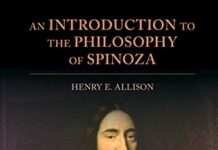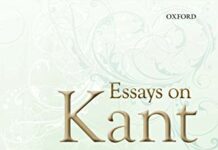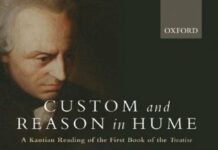
Ebook Info
- Published: 2001
- Number of pages: 444 pages
- Format: PDF
- File Size: 1.53 MB
- Authors: Henry E. Allison
Description
This book constitutes one of the most important contributions to recent Kant scholarship. In it, one of the pre-eminent interpreters of Kant, Henry Allison, offers a comprehensive, systematic, and philosophically astute account of all aspects of Kant’s views on aesthetics. The first part of the book analyses Kant’s conception of reflective judgment and its connections with both empirical knowledge and judgments of taste. The second and third parts treat two questions that Allison insists must be kept distinct: the normativity of pure judgments of taste, and the moral and systematic significance of taste. The fourth part considers two important topics often neglected in the study of Kant’s aesthetics: his conceptions of fine art, and the sublime.
User’s Reviews
Reviews from Amazon users which were colected at the time this book was published on the website:
⭐The standard texts on this topic are by Guyer, Barnham, Crawford, and Ginsborg (dissertation). The Guyer text is thorough and rigorous–a quite careful reading and interpretation of the Third Critique–I recommend it along with Allison’s recent work. (Allison and Guyer sometimes disagree on important points….)Allison is an astute and keen defender of Kant (see his Transcendental Idealism/Yale UP). This new book is aptly in line with his best scholarship and cautious reading. I highly recommend it.Allison’s text is divided into four parts. First, he deals with Kant’s “Conception of Reflective Judgment,” whereby I recommend that you also review B. Longuenesse’s book on judgment (Princeton UP). Allison’s interpretation here differs from L’s, and he clearly states how his view is unique, as well as a more balanced comprehension of the conncetion between the reflective judgment of taste and the epistemic role of reflection.I daresay, the second part of the book is the most important (Chs. 3-8); it deals with the quid facti/quid juris distinction in the domain of taste. Chs. 6-8 are quite useful, especially ch. 8, which is on “the Deduction of Pure Judgments of Taste.” An understanding of this material is crucial to a more certain grasp of K’s Third Critique.Part 3 deals with the connection between judgments of taste and moral judgments. Ch. 10 discusses the mirror-like connection between ‘duty’ and pure ‘aesthetic judgments.’Part 4 discusses genius and K’s notions on sublimity. For specific coverage on this topic, see Crowther on the Kantian Sublime (Oxford UP) in conjunction with this chapter.
Keywords
Free Download Kant’s Theory of Taste: A Reading of the Critique of Aesthetic Judgment (Modern European Philosophy) 1st Edition in PDF format
Kant’s Theory of Taste: A Reading of the Critique of Aesthetic Judgment (Modern European Philosophy) 1st Edition PDF Free Download
Download Kant’s Theory of Taste: A Reading of the Critique of Aesthetic Judgment (Modern European Philosophy) 1st Edition 2001 PDF Free
Kant’s Theory of Taste: A Reading of the Critique of Aesthetic Judgment (Modern European Philosophy) 1st Edition 2001 PDF Free Download
Download Kant’s Theory of Taste: A Reading of the Critique of Aesthetic Judgment (Modern European Philosophy) 1st Edition PDF
Free Download Ebook Kant’s Theory of Taste: A Reading of the Critique of Aesthetic Judgment (Modern European Philosophy) 1st Edition


